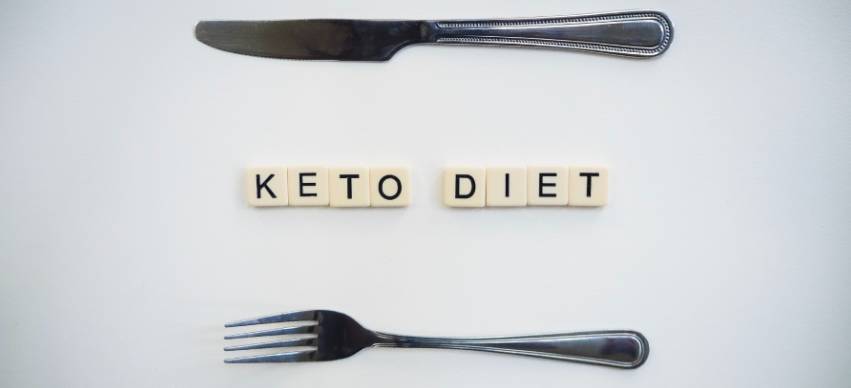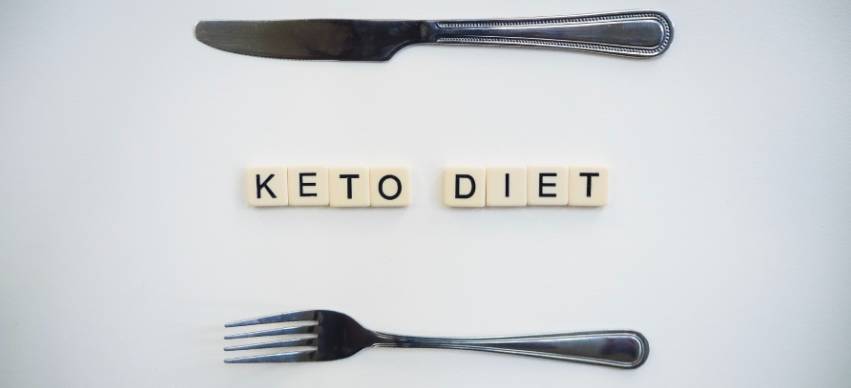Everyday Habits That Can Protect Your Eyes from Damage
4 Min Read


Many of you must have heard about the recent eating trends when it comes to losing weight and making your bodies fit and healthy. The ketogenic diet (keto diet) is one of those eating trends that has gained popularity recently and captivated the attention of overweight-obese people struggling to lose weight swiftly and improve their health. Undoubtedly, obesity is a major health problem that has affected nearly 13% of adults globally1 in recent years.
Although obesity is a manageable disease, people often divert to different, restrictive, stringent diet plans and fitness regimens just to burn extra fats and get their bodies to an ideal weight and perfectly slim. However, losing weight through various low-carb diet plans, including the ketogenic diet, and maintaining the body's nutritional and energy requirements simultaneously, has always been challenging to achieve in one go.
This article will give you an overview of the keto diet, how it works and promotes weight loss, and what ketogenic foods you should eat and avoid when you're on a keto diet.
Let's first take a closer look at the keto diet and how it works.
A ketogenic diet (in short, keto) derives its name from "ketones" that are produced in your body when you are on this diet plan and consume high fats, as explained on PlanKetogenic.pro.
The keto diet is an eating diet plan basically consisting of three macronutrients (carbs, proteins, and fats). These dietary macronutrients are consumed in a strict ratio of very low carbs (5-10%), moderate protein (20-25%), and high healthy fats (70-80%). The concept of the keto diet (low carbs and high fats) is not entirely new, and it shares some similarities with other diets such as the gluten-free diet, Paleo diet, strict low-carb diet, and it’s very close to the Atkins diet.
Concisely, the keto diet is the updated version of old diets that have been tried for decades, even for centuries. In the beginning, the keto diet was widely used as a therapeutic diet for controlling diabetes and treating pediatric epilepsy and seizures2, until it gained popularity as an effective diet for weight loss.
Biologically, your body utilizes carbohydrates you take from your diet as a primary source of energy. These carbohydrates break down into glucose (a simple carbohydrate) and are then used by your body’s cells and tissues as fuel to perform vital functions efficiently. In contrast, keto changes our primary energy source from carbs to fats.
When people on a ketogenic diet start consuming less carbohydrate-rich foods (less than 50g per day) and more healthy fat-rich food, their body's metabolic state changes dramatically. This happens due to the low level of carbohydrates or glucose, which ultimately leads their bodies to switch into a special metabolic state called "ketogenesis" or "ketosis."
Ketosis is a natural and alternative metabolic process that is activated when the human body runs out of glucose. This forces the body to drive energy by burning stored fats in order to keep the body's system and functions running smoothly.
During the ketogenic state, the liver breaks down the stored fats into energy molecules called "ketones," which later build up in the body and get used as an energy source when glucose is not available. Similarly, your brain, which mainly relies on glucose, also uses these energy molecules (ketones) from blood circulation to perform properly.
It should be worth noting that a ketogenic state can only be achieved when you consume high fat and moderate protein. If you consume high protein, your body will be more likely to convert the protein into glucose and less likely to reach ketosis. You can check your body's metabolic state by measuring the number of ketones in your blood or urine.
Although the keto diet offers numerous health benefits against Alzheimer's disease, cardiovascular disease, diabetes, cancer, acne, and epilepsy, the prime benefit that crazes people to do this diet is fat reduction; in other words, weight loss.
The keto diet turns your body into a fat-burning machine that continuously burns fats instead of glucose even when you are sleeping. In fact, several lines of research support the hypothesis that the keto diet is more effective for losing weight than a low-fat diet, as we explain below.
The meta-analysis of thirteen studies demonstrated that individuals on a Very Low Carbohydrate Ketogenic Diet (VLCKD) showed a decrease in body weight and loss of around two pounds (0.9kg) compared to those who were on a Low-Fat Diet (LFD) for the long-term5.
Similarly, another research study reported that people on a keto diet (low-carb diet) lost 2.2x more weight than those on a low-fat and low-calorie diet6. They further added that individuals on the keto diet showed improved high-density lipoprotein (“good” cholesterol) and lower triglycerides7.
Also, a recent clinical trial conducted on 34 older adults aged between 60–75?years with obesity showed promising results. Researchers found that those participants who followed a ketogenic diet for eight weeks lost an average of around three times more visceral adipose tissue (fat-storing tissue) than those who followed a low-fat diet. Moreover, researchers further reported that low-carb and high-fat diets, like keto, are effective in reversing obesity in older adults because keto improves insulin sensitivity and the lipid profile by depleting the adipose tissues8.
Based on the above research findings, the keto diet is being considered an effective diet method for rapid weight loss. However, it should also be noted that the aforementioned studies were conducted on a small number of individuals and only checked the short-term effects of the diet. More research needs to be done to validate other points, like whether keto would be beneficial for long-term weight loss and whether people would gain weight when they resume their regular diet.
The keto diet promotes weight loss by burning fats and calories in the following ways;
Since the keto diet contains very few carbs, moderate protein, and a high-fat ratio, people should choose foods and snacks that are keto-friendly to lose the desired amount of weight.
The most recommended foods you should eat when you are on a ketogenic diet include:
Foods that need to be avoided when you are on ketogenic diet includes;
It is important to know that the keto diet may not be for everyone but is only appropriate and palatable for people with no previous history of food allergies or medical problems like high cholesterol or heart disease. So, if you're considering starting a ketogenic diet, you should consult your healthcare professional.
Your healthcare professional will construct a personalized keto diet plan according to your current health and food preferences to fulfill your body's nutritional requirements along with losing weight.